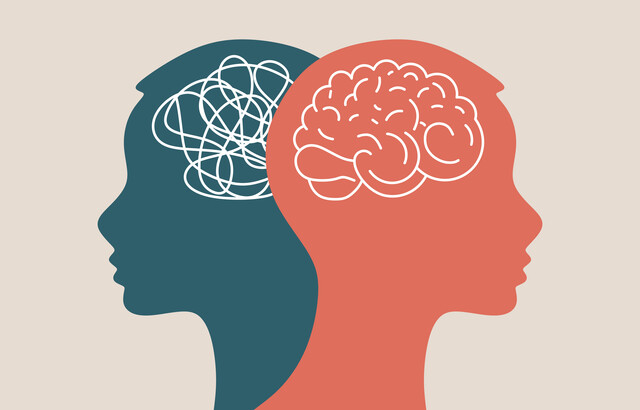Stress Management
Transform Tension into Triumph

In our engaging, real-world-focused course, you'll interact with scientifically-backed techniques that integrate smoothly into your hectic schedule. Picture yourself confidently navigating life's challenges with newfound resilience and strategic insight. You'll discover the life-altering power of small, purposeful changes; the art of peeling back the layers of life's stressors to reveal a core of calm and control.
Crafted with a warm, personal touch, this course is your companion--guiding you from chaos to clarity. Master stress prevention strategies and enhance your emotional intelligence to thrive in personal and professional realms. More than a course, it's an investment in yourself, a leap towards a healthier, more centered you. This is more than learning; it's life-changing. Join us, and seize control of your stress, and your life, today.
4 Hours average completion time
0.4 CEUs
10 Lessons
21 Exams & Assignments
932 Discussions
10 Videos
11 Reference Files
18 Articles
Mobile Friendly
Last Updated December 2025
Understanding and Managing Stress: A Comprehensive Guide
In today's fast-paced world, the term 'stress' has become ubiquitous, resonating with individuals across all walks of life. From the challenges of daily routines to larger life events, stress is a constant companion for many, regardless of age, profession, or circumstances.
Although the feeling of being stressed is universally recognized, it manifests uniquely in every individual. Stress, at its core, can be described as any physical, mental, or emotional strain that arises due to particular situations or events in our lives. A fascinating aspect of stress is its relativity. An event that may be a significant stressor for one might be inconsequential for another. Hence, it's not merely the event but our perception and interpretation of it that determines its stressful impact.
In a world teeming with stimuli, our brain constantly evaluates and responds to them. When faced with positive situations, the response is generally favorable. But confrontations with scenarios we deem overwhelming lead to the buildup of stress. Chronic stress, if not managed effectively, can lead to a plethora of health issues, emotional imbalances, decreased productivity, and even premature aging.
Given the omnipresence of stress, it becomes imperative to not only understand its root causes but also equip oneself with strategies to mitigate its impact. This course offers a deep dive into understanding the nuances of stress and provides actionable insights to handle it effectively.
Here's a snapshot of what this course encompasses:
- Introduction to Stress: Grasp the essence of stress, its manifestations, and its repercussions on our well-being.
- What are our Stressors?: Dive into identifying personal triggers and understanding their significance in your life.
- Small Changes and Large Rewards: Explore simple yet impactful alterations in daily habits that can significantly reduce stress levels.
- Stress Prevention: Understand proactive measures to preemptively manage and reduce potential stressors.
- Coping Skills: Delve into various techniques and strategies to cope with stress effectively when faced with overwhelming situations.
- Stress in the Home: Address the complexities of familial and domestic stressors, offering strategies for harmony and balance.
- Overcoming Monetary Stress and Unhealthy Worry: Financial strains are a major cause of stress for many. Discover methods to manage and alleviate these pressures.
- Stress and the Workplace: From deadlines to interpersonal relationships, uncover ways to navigate the maze of professional stressors.
- Dealing with Frustration and Anger: Learn to identify, manage, and channel these intense emotions in a constructive manner.
- Stress Reducing Exercises: Engage in practical, hands-on exercises designed to physically alleviate stress, bringing about mental relaxation.
As you journey through this course, you'll acquire a holistic understanding of stress, both theoretically and practically. Real-world examples will provide context, ensuring the content is relatable, and the strategies offered are implementable.
Whether you're a professional navigating the corporate jungle, a student juggling academics and personal life, or someone keen to understand the mysteries of the human psyche, this course is tailor-made for you. With a blend of scientific insights and actionable strategies, you'll be equipped to lead a balanced, productive, and stress-reduced life. Join us to transform your understanding of stress and harness the tools to master it.
- Proactive stress prevention
- Financial stress management
- Positive mindset cultivation
- Stress resilience and adaptability
- Work-life balance strategies
- Conflict resolution techniques
- Enhanced problem-solving skills
- Effective coping mechanisms
- Improved emotional regulation
- Household stress management skills
- Mindful stress-reduction practices
-

Communicating with Diplomacy and Tact
-

Child Safety for Parents
-

How to Write a Grant Proposal
-

Business Math 101
-

Psychology 101
-

Paralegal Studies Career Overview
-

Spiritual Counseling
-

Understanding Insurance Types
-

Motivational and Public Speaking
-

Workplace Safety
-

Unit Studies 101
-

Preventing Workplace Harassment
-

The Art of Setting Goals
-

Relaxation 101
-

Depression Management
-

Understanding Addictions
-

Mastering Conversation Skills
-

Understanding Learning Styles
-

Tea Party Mastery: From Brew to Ambience
-

Basic Parenting Skills
-

Critical Thinking Skills
-

Serial Killers 101
-

Goal Setting for Business
-

Advertising, Marketing and Sales Writing
-

Quicken Tutorial: All Versions